Hot air, motor oil and customised cars are all common fixtures during racing events. Bright red lip gloss, acrylic nails and bullet casings not so much.
Still, it’s not as though this particular racing team has ever been one to abide by the rules; these are the Speed Sisters of Palestine, the first all-female driving team in the Arab world.
Comprised of five women from the occupied West Bank, the Speed Sisters have smashed racing records and gender barriers alike since forming in 2009, and are now the focus of a new documentary from Lebanese-Canadian director Amber Fares.
Managed by 38-year old Maysoon Jayyusi, who says her love of racing stems from the frustration of being stuck in the area’s constant military checkpoints, the Speed Sisters also count 29-year old Mona Ali, Marah Zahalka, 23, Noor Dauod, 25, and 35-year old Betty Saadeh among their ranks.
“I was racing cars when I was a kid, learning how to do it, speeding with the boys from school”, says Ali. At just 16 years old, she would borrow her sister’s car and race it through the streets of Ramallah in the dead of the night.
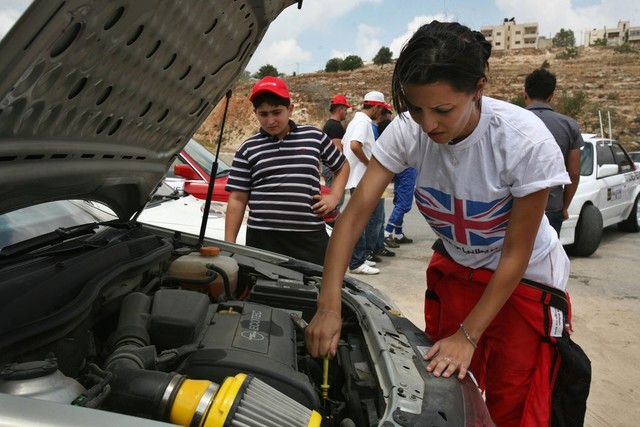
The first woman to join the nascent Palestinian racing federation in 2005, Mona’s struggle, like the rest of her teammates’, has been characterised by a constant uphill battle against Palestine’s conservative Muslim society.
“At first, the boys wouldn’t accept me; they didn’t want to race with me,” she said. “Even later when the other girls arrived, we would still hear things like you should be in the home cooking, negative things. But we let our racing do the talking."
Though the Speed Sisters now draw large crowds of spectators, both male and female, to their races, not everyone is happy to see them on the track. Despite the growing popularity of motorsport in the Arab world, a number of Muslim clerics have spoken out against the sport.
New driver Sajar Jawabrah, who stands out from the rest of the team as she wears an Islamic headscarf underneath her helmet, says that she’s heard men call it haram, or sinful according to Muslim values.
Likewise, while most men at the races cheer just as loudly for the Sisters as for the men, some still say they’re uncomfortable with the idea of women at the racetrack.
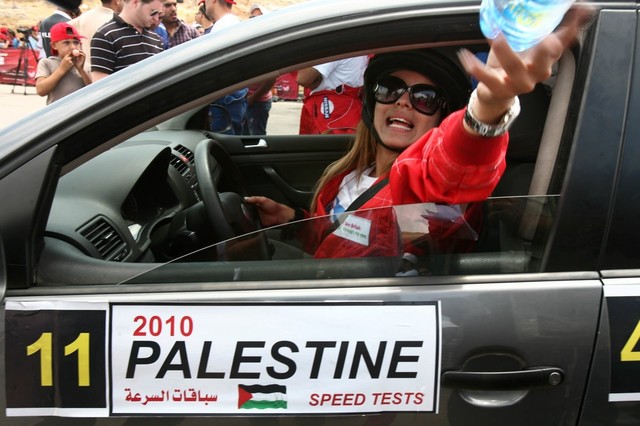
Tareq Sarsou, a 33-year old shopkeeper from Ramallah, said that while he’s impressed by the sport, he doesn’t think it’s appropriate. “I would not allow my wife, my sister or my daughter to race here,” he said.
Still, Mona says she’s determined to keep racing regardless, saying: “My family was not happy for me to start participating in this kind of sport, because it was: I will race individually and because it was unforeseen and not safe and mainly for men and all of this.
“This means, for us and for me, this means to prove that a woman can do what they want, whenever they want. And there is no sport that is especially for men or especially for women. Driving is for women, for men, it's a sport. And we can compete with men in all kinds of sports.”
Cultural values aren’t the only speedbumps the team has encountered, however, with economic and political pressure making racing in the West Bank a uniquely challenging endeavour.
The area of Palestine where the team lives and trains doesn’t have racing tracks, meaning that the drivers are forced to practise on stretches of land next to Israeli military compounds, resulting in their cars often getting hit with gunfire or tear-gas canisters.
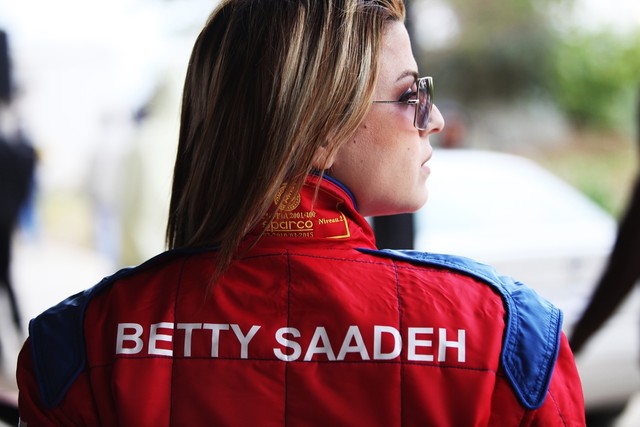
Drivers with West Bank IDs are also inhibited from racing in other parts of the world, including Israel, while Israeli law forbids Palestinians to drive too close to territories controlled by Israel.
Noor, the only Speed Sister with an Israeli ID, says: “Everything you want to do involves politics here. Being a racer in Palestine is political. Being a woman, here that is political as well.”
What’s more, the Sisters can’t afford racing-spec cars, meaning that they end up customising standard street cars with rattle-can paintjobs and rudimentary engine upgrades to compete against male teams, who often carry much better equipment.
More than once, technical faults like broken handbrakes or losses thanks to non-regulation parts, the only components that can be sourced cheaply, have caused the team to miss out on wins in one of the West Bank’s popular Speed Test races.
Clearly, then, you’d only put yourself through such an ordeal if you loved the sport. And these racers do. Team manager Jayyusi says: “It’s true that, when we first started, people looked at us as though we’d just landed from space, but when they saw us race they changed their minds.”
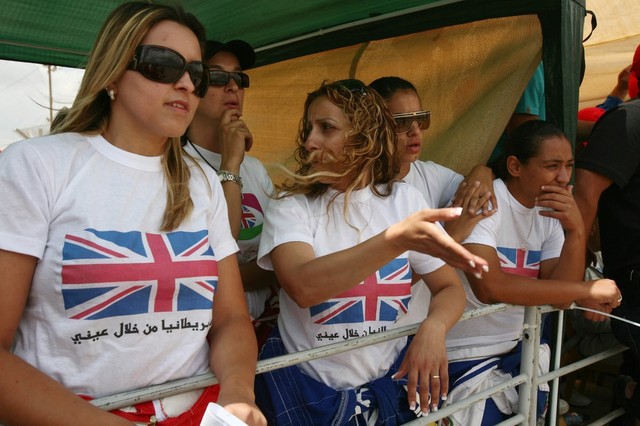
“You prove that you are strong enough, not scared, that you can compete with the men, and then it just becomes acceptable,” she added.
Strength and defiance are two characteristics key to the Speed Sisters’ success, and it’s something that’s been picked up on not only by the fans, but from much higher powers as well.
Karen McLuskie, British political consul, discovered the team soon after their formation and persuaded the British Consulate to fly in two professional drivers to train the team, leading them to sport British flags on their cars and overalls as a thank you.
"I think for me, driving isn't like any other sports; men and women can compete in the same race," McLuskie said. "At the beginning of the season we had one of our girls who won her category. And you should have seen the faces of those guys."
Still, the country’s culture is ever pervasive. The team reached a height of eight racers in 2010, but today only the four remain. “In this society with marriage, commitment to the house, the culture itself can make it difficult to stay in the sport,” said Mona.
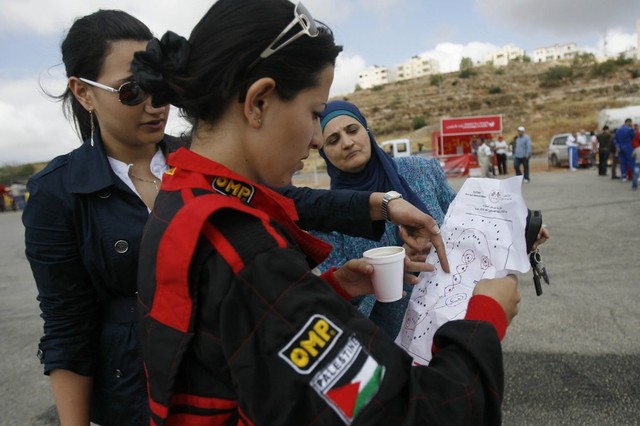
Yet in spite of the difficulties of being a female racer in the Occupied Territories, what’s more obvious is how far the Speed Sisters have come and how far they’re yet determined to go.
As Mona puts it: "It means a lot to have come this far, to break down barriers like this, to provide a different identity to Palestinian women than what gets portrayed in the media."
“Racing can also be both a means of resistance and an outlet. When I drive I feel free from pressure of life, from the political situation, from everything. That's what this is about for every one of us drivers."



